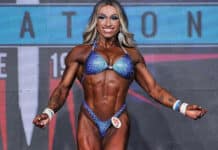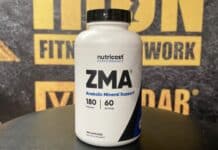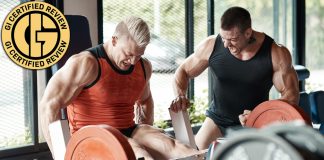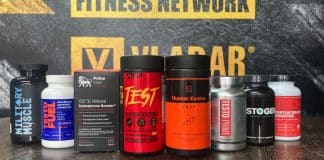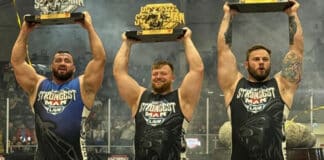Matt Wenning explains why he is mostly grateful for not being born with “freaky genetics.”
In a riveting episode of The Mike O’Hearn Show, Mike O’Hearn sits down with legendary powerlifter Matt Wenning, whose journey into the world of strength sports is nothing short of inspiring. They discuss the importance of long term goals in strength and fitness – and why being born with “bad genetics” can actually be a blessing for greater success.
Born and raised in Indiana, Matt’s early life was marked by adversity, including a life-changing accident at the age of six. Despite the challenges, he discovered weightlifting at the age of ten, a passion that would shape his future.
Matt Wenning’s Early Life and Education
Matt Wenning’s story is one of resilience and determination. After a severe car accident at the tender age of six, Matt faced a lengthy recovery process. However, this adversity only fueled his passion for strength training, which he discovered at the age of ten. This early interest in lifting weights not only propelled him towards athletic pursuits but also instilled in him a drive for higher education.
With a stellar academic record, Matt pursued degrees in Biomechanics and Exercise Science. These educational achievements laid the foundation for his illustrious career as a strength coach and mentor, where he has inspired countless individuals to pursue their fitness goals.
Navigating Fitness in Older Age
One of the key topics discussed in the podcast is the notion of aging and its impact on fitness. Mike O’Hearn asks Matt if he gets triggered when people talk about exercise, bodybuilding, and strength sports in the past tense, as if these activities are only for the young. Matt’s response is candid and passionate.
Matt admits that it does make him angry when people suggest that fitness is only for the young. He has dedicated his entire life to fitness and strength training, continuously learning, adapting, and growing. Matt considers his peak to be in his 40s, as it represents the culmination of three decades of training, experience, and adaptation.
When Matt sees middle-aged individuals online who can no longer maintain excellent strength or a great physique offering exercise advice, he questions their knowledge about fitness. According to Matt, maintaining strength and energy for fitness in your youth is easy. The real challenge lies in learning the proper techniques to sustain it over a lifetime. Those who burn out by their 30s or 40s are not the kind of people aspiring athletes or fitness enthusiasts should follow.
The Reality of Social Media Fitness
The conversation then shifts to the impact of social media on fitness culture. Matt expresses his concern and anger over modern social media trends promoting the idea of “becoming an icon or famous overnight.” He highlights the unrealistic expectations set by social media, where individuals believe they can achieve excellence overnight without acknowledging the years of hard work and dedication required.
Matt points out that for every overnight sensation like Sam Sulek, there are thousands of individuals working just as hard, if not harder, who will never gain the same attention. He emphasizes that the sudden fame many are chasing is often short-lived. Most people who gain internet fame are forgotten within a few years. Matt questions whether it is worth burning out by training too hard or resorting to drugs for fleeting fame.
The fundamental lesson fitness teaches, according to Matt, is the power of consistency over a long period. This principle is often twisted and skewed by the world of “social media fitness,” leading many down a dangerous path.
Intelligent Training and Longevity
Matt also shares his philosophy on intelligent training. He believes that the gym is about doing the least amount of work while still making progress. He questions the logic of doing ten reps if growth stops after seven or continuing to max out if it no longer brings improvement. This approach, he warns, is a recipe for long-term damage.
From a scientific standpoint, Matt explains that there is a point where more weight or more reps do not contribute to strength or muscular development. Understanding this threshold is crucial for anyone serious about long-term fitness.
Matt also reflects on his own journey, stating that he is almost glad he wasn’t a genetic freak. This lack of genetic advantage taught him the discipline required for consistent training and growth. It also provided him with a better long-term perspective on his talents and abilities.
The Importance of Connective Tissue
Towards the end of the podcast, Matt shifts the focus to an often-overlooked aspect of strength training: the importance of strengthening connective tissue. While most people concentrate on building muscle, Matt highlights that connective tissue is crucial for strength and training ability, especially as we age.
Matt recounts the moment he discovered a training method involving high reps and high volume—20 reps per set. This technique, often discussed in Russian fitness essays, aims to build strength in connective tissue. Upon incorporating this method, Matt noticed significant improvements in his lifting ability, describing it as being able to lift weights “like a toy.”
Wrap Up
The Mike O’Hearn Show‘s episode with Matt Wenning is a treasure trove of insights and wisdom from a seasoned powerlifter and strength coach. Matt’s journey, philosophies on intelligent training, and views on the impact of social media on fitness provide valuable lessons for anyone interested in strength sports.
His emphasis on consistency, proper technique, and the importance of connective tissue serves as a reminder that fitness is a lifelong journey, not a destination. Whether you’re a seasoned athlete or just starting, Matt Wenning’s experiences and advice offer a guiding light towards achieving long-term success in fitness.
You can watch the full episode above! And don’t forget to check back every week for new episodes on the Generation Iron Fitness Network or wherever podcasts are downloaded!





